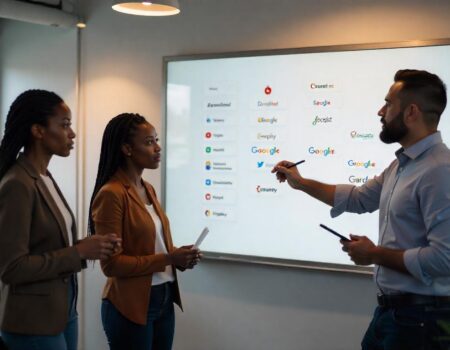Reddit’s Growth Advisor Shares Insights on Crafting a Vertical-Specific SEO Strategy
Once upon a time, SEO was a one-size-fits-all concept. (Cue Mr. Incredible meme.) Whether you were a billion-dollar brand or a teenager running a Spice Girls Tumblr, the goal was simple: get your page into those ten blue links.
Now, two marketers might not even be playing the SEO game on the same field—let alone following the same rules. So how do they stand a chance at winning?
Lesson 1: Develop a Vertical-Specific Approach
These days, the type of search you perform can lead to vastly different experiences. A product search might direct you to Google Shopping, while an informational query triggers an AI Overview. And that’s assuming you’re searching on Google at all.
The reality is that SEO has evolved to mean radically different things for marketers operating in different spaces.
“Depending on the vertical you operate in, you might not use the same tools,” Indig explains. “You might not even optimize for the same platform.” Adopting a vertical-specific strategy is essential to staying competitive in today’s fragmented search landscape.
For instance, consider a SaaS or B2B brand aiming to secure visibility in Google’s AI Overviews.
“AI Overviews pull a lot of citations from platforms like YouTube or LinkedIn,” he notes. This means that a business looking to rank in Google search results might need to focus less on their website or traditional Google optimization and more on these external platforms.
On the other hand, marketing a B2C product “is much more about Google Merchant Center than Google Search Console. It’s a completely different playing field with completely different ways to win.”
“The pattern here is fragmentation “We can’t just talk about SEO anymore. What form of SEO are we talking about?”
But regardless of the vertical you’re in, one thing is clear: “SEO should not just be on Google anymore.”
Lesson 2: Decide Where You Want to Be
Indig simply means that good SEO is bigger than just Google these days, but it raises the question about Google’s competitors. So we asked if marketers should even be focusing on Google in the first place.
In true SEO fashion, the answer is “it depends.” (It’s comforting to know some things never change, right?) And what it depends on is — again — your vertical.
So if you’re a small business with a physical presence?
“When it comes to local search, we don’t see anybody getting close to Google in the next decade. [It still] has an absolute stronghold.”
What about eComm?
“We would argue that Google never won. Amazon still holds that space.”
And our fictional SaaS looking to show up in the overviews? That’s where things get a little more gray.
“When it comes to the informational space, we think there is a realistic chance that an LLM like ChatGPT can take significant market share.”
(Now seems like an acceptable time to plug our AI Search Grader? #ShamelessPlug #ButItsActuallyRelevantSo…?)
But that doesn’t mean it’s time to jump ship on Google.
Indig suggests thinking about your digital presence the same way you might consider what kind of store your product belongs in: Where will your ideal customers be looking? And, in this metaphor, Google is a big ol’ shopping mall.
You might head to the mall “if you’re not sure what you need, or you just want to browse around.” But if you’re after [name a very specific thing], you might head [specific thing store].
Lesson 3: Get Comfortable with Experimenting
All of these changes lead to one undeniable truth: SEO is no longer a plug-and-play strategy. And while that may seem challenging, it’s actually a positive development.
“It’s kind of cool, because it feels like the early days of SEO,” Indig says, waxing nostalgic. “There wasn’t an exact playbook — and there was a lot more experimentation.”
If you’ve been doing SEO for less than… let’s say 10-15 years… you might not remember that there was a time when none of us knew what we were doing. There was no clear SEO strategy to follow. Instead, people simply discovered tactics that worked (and then overused them to exhaustion. But that’s beside the point.)
“And we think a lot of people new to SEO don’t know that world. And they’re entering that world right now. We believe an important skill is to really understand how to experiment, how to learn, and then how to act based on your findings.”
Lingering Questions
Right now, it feels like so many brands are investing in beautifully produced, curated, experiential moments that are intended to drive awareness and shareability (and likely very expensive).
How do we think new brands with limited budgets should approach this tactic and still manage to cut through the clutter?
From our experience, the highly produced moments matter at certain points, like when customers consider a purchase, but what often catches their attention is the highly authentic, unpolished moment.
Partner with our Digital Marketing Agency
Ask Engage Coders to create a comprehensive and inclusive digital marketing plan that takes your business to new heights.
Contact Us
That’s why influencer marketing works. So, as a brand with a limited budget, we’d focus our resources on a few well-produced marketing assets (like videos of product images) and allocate the rest to authentic, raw moments that build trust and curiosity.







